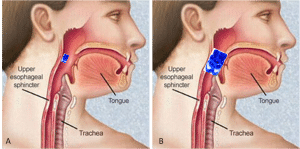Unlocking Thyroid Health: Understanding Symptoms, Treatments, and Lifestyle Tips
Introduction to Thyroid Health
The thyroid gland plays a crucial role in regulating various bodily functions through the production of hormones. Understanding its health implications is essential for maintaining overall well-being. In this comprehensive guide, we delve into thyroid health, covering symptoms, treatments, and lifestyle adjustments to optimize thyroid function.

Understanding Thyroid Symptoms
Identifying symptoms of thyroid dysfunction is pivotal for timely intervention. Common symptoms of an underactive thyroid (hypothyroidism) include fatigue, weight gain, and sensitivity to cold. Conversely, symptoms of an overactive thyroid (hyperthyroidism) may manifest as weight loss, rapid heartbeat, and irritability. Recognizing these signs prompts further investigation and medical consultation.
Diagnostic Procedures
Accurate diagnosis is facilitated through various diagnostic procedures. Blood tests measuring thyroid-stimulating hormone (TSH), T3, and T4 levels provide crucial insights into thyroid function. Imaging techniques such as ultrasound and thyroid scans help visualize glandular structure, aiding in the diagnosis of nodules or enlargement.
Treatment Options
Hypothyroidism Treatments
For hypothyroidism, treatment typically involves thyroid hormone replacement therapy. Levothyroxine, a synthetic thyroid hormone, effectively restores hormone levels, alleviating symptoms and normalizing metabolic processes. Regular monitoring ensures optimal dosage adjustments.
Hyperthyroidism Treatments
Managing hyperthyroidism often entails multiple approaches. Antithyroid medications like methimazole or propylthiouracil inhibit hormone production. Radioactive iodine therapy selectively destroys thyroid tissue, while surgery may be considered for severe cases or nodular enlargement.
Lifestyle Modifications
Dietary Considerations
A balanced diet rich in iodine, selenium, and zinc supports thyroid function. Incorporating whole grains, lean proteins, and fresh fruits and vegetables promotes overall health. Limiting processed foods and excessive iodine intake is crucial, especially in iodine-sensitive individuals.
Exercise and Stress Management
Regular physical activity stimulates thyroid hormone release and enhances metabolism. Engaging in stress-reducing activities such as yoga or meditation mitigates cortisol levels, fostering thyroid health. Adequate sleep and relaxation further support hormonal balance.
Preventive Measures
Regular Medical Check-ups
Routine thyroid screenings facilitate early detection of abnormalities, ensuring prompt intervention. Individuals with a family history of thyroid disorders or autoimmune conditions benefit from proactive monitoring.
Environmental Factors
Avoiding exposure to environmental toxins and maintaining a healthy lifestyle minimize thyroid-related risks. Awareness of iodine-rich foods and potential dietary allergens aids in preventing exacerbations of thyroid conditions.
Conclusion
Understanding thyroid health encompasses recognizing symptoms, pursuing accurate diagnostics, exploring diverse treatment options, and embracing lifestyle modifications. Empowering individuals with knowledge promotes proactive health management and enhances overall well-being.